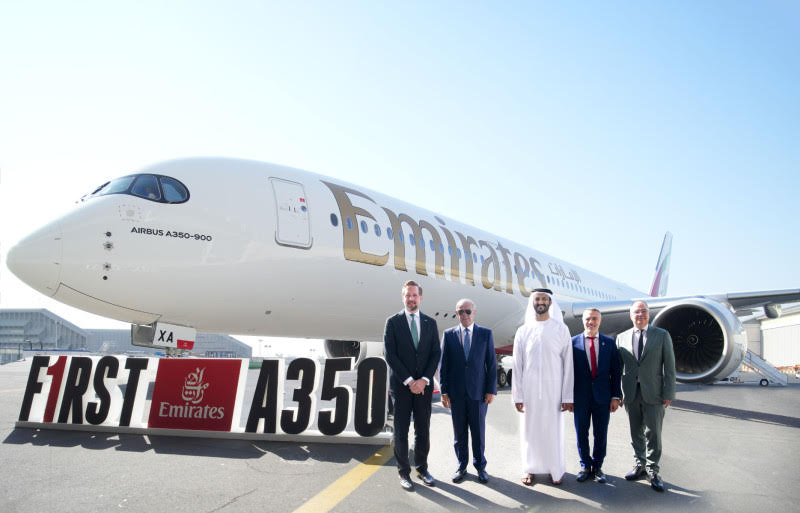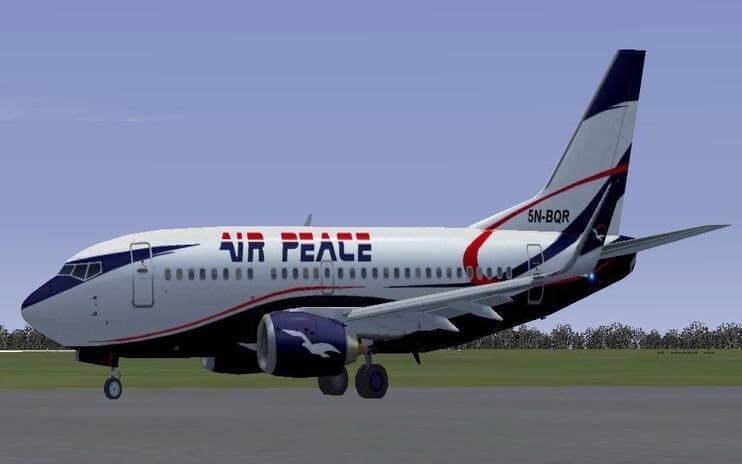Travel/Tourism
African Market for Online Travel is Still Emerging—Report

By Modupe Gbadeyanka
A new report by Jumia has said the African market for online travel was still nascent with undoubted prospects.
The piece titled Jumia Africa Hospitality Report, in its second edition, looks at the 2017/2018 trends in the continent’s tourism, travel, hospitality and aviation industries.
It focused on the impressive growth that Africa’s travel and tourism industry has recorded through in 2017 and 2018 with an increase in international arrivals.
The Jumia Hospitality Report further underlines the industries’ contribution to the economy, underlying challenges and the potential for future growth, as African tourism becomes of age.
According to the CEO of Jumia Travel & Food, Mr Joe Falter, “The African market for online travel is still nascent with undoubted prospects. We are proud to once again produce a comprehensive report that highlights the diverse aspects of both the hospitality and aviation industries in Africa. This has been made a success by the input of our partners.”
The report said although the continent receives only 5 percent of all the international arrivals, Africa’s travel and tourism industry continues to record impressive growth over the years.
In 2017, the continent hit a 63 million high in international tourist arrivals as compared to 58 million in 2016 (against 9 percent in 2016). As a result of affordability and ease of travel, domestic travel is growing in Africa, recording a high of 60 percent in local spending as compared to 40 percent in international spending.
The UNWTO’s Secretary General Zurab Pololikashvili explains the change in domestic travel landscape in Africa, noting that “people’s movement is no longer a luxury set aside for the few with high per capita income but a basic need for the ever-increasing majority of the middle class who create and shape the future generation entrepreneurs. A growing middle class is a sign of a robust economy. The existence of domestic tourists who have more money to spend at their disposal and thus willing to travel more has led to the mushrooming of low-cost airlines, upward growth of bed capacity in main cities, flourishing of the so-called shared economy etc”.
The AU e-Passport and the creation of visa upon arrival, e-visa and visa-free travel for African citizens in line with the concept of unrestricted movement of persons, goods and services across the countries remains a strong driving factor to the growth of domestic travel. Africans now do not require a visa to travel to 25 percent of other African countries can get visas on arrival in 24 percent of other African countries, while still a dominant 51 percent of African countries need Africans to have visas to travel.
The report also breaks down the percentages of the various sources of traffic on Jumia. The high record in the mobile as a source of traffic is perhaps as a result of the increasing adoption of smartphones in Africa, which stands at 34 percent in 2018 and 61 percent of the travellers are using a smartphone to book their hotel or flight on Jumia Travel. The African traveller still opts to Pay-at-Hotel as the mode of payment (65 percent) in 2018, even as the trust for Credit & Debit Card increases to 21 percent from 15 percent in 2017.
Africa’s Aviation Industry
Africa’s air passenger traffic share is only 2.2 percent of the world total with 88.5 million passengers in 2017, an increase of 6.6 percent from 2016. It is expected to grow by 4.9 percent annually over the next 20 years, creating enormous opportunities for the continent’s airlines to grow.
Addressing how to competitively position Africa’s airlines in the global aviation market, IATA’s Special Envoy to Africa on Aeropolitical Affairs Raphael Kuuchi stipulates that “the sustainable growth of African airlines traffic lies in removing the bottlenecks to effective connectivity, lowering industry operating cost and developing commercial cooperation among airlines. With the assurance of safety, security, competitive operating environment, ease of market access and visa facilitation, Africa’s share of passenger traffic will exceed 320 million by 2037,” he concludes.
Travel/Tourism
Emirates Unveils Airbus A350-900 in Dubai

By Aduragbemi Omiyale
One of the leading airline operators, Emirates Airline, has officially unveiled its first Airbus A350-900 at an exclusive event showcase in Dubai attended by aerospace partners, government officials and dignitaries, members of the media, as well as aviation enthusiasts.
The Emirates A350 features three spacious cabin classes, accommodating 312 passengers in 32 next-generation Business Class lie-flat seats, 21 Premium Economy seats and 259 generously pitched Economy Class seats.
The latest onboard products reflect the airline’s commitment to delivering a premium passenger experience while optimising operational efficiency. The Emirates A350 is the first new aircraft type to join Emirates’ fleet since 2008.
Apart from its newly delivered A350, Emirates operates two other aircraft types around the world to 140 destinations – the widebody Boeing 777 aircraft and the iconic ‘double decker’ Airbus A380 aircraft.
The A350’s introduction will enable Emirates to expand into new destinations globally, including mid-sized airports unsuited for larger aircraft. The Emirates A350 will be delivered in two versions – one for regional routes and one for ultra long-haul routes.
The Emirates A350 takes technology to another level. Customers can now adjust their electric window blinds at the touch of a button.
The aerBlade dual blind system will feature in Business and Premium Economy Class offering two shaded options, and the aerBlade single blind systems will make a debut in Economy Class, with all blinds showing the Emirates Ghaf tree motif when closed.
Business Class on the Emirates A350 will feature 32 luxurious leather ‘S Lounge seats’, inspired by the Mercedes S Class for an exceptional travel experience. The A350 aircraft will feature brand new additions of wireless charging on the side cocktail table in Business Class, and in-seat lighting controls with 5 streams of light. The 1-2-1 seat configuration in the A350 Business Class ensures a very private, exclusive experience.
Speaking at the event, the chairman of Emirates Airline, Mr Ahmed bin Saeed Al Maktoum, said, “Today is an exciting milestone for Emirates as we showcase our first A350 and usher in a new era for our fleet and network growth.
“This aircraft sets the stage for Emirates to spread its wings farther by offering added range, efficiency and flexibility to our network, enabling us to meet customer demand in new markets and unlock new opportunities in the cities that we serve.
“Onboard, our updated interiors and seating configurations will help us deliver a more elevated and comfortable experience to travellers across every cabin class.
“The 65 Emirates A350s joining our fleet in the coming years fit into the airline’s broader plans to support our visionary leadership’s Dubai’s D33 Strategy, which will transform the city into a pivotal hub in the global economy by expanding its connectivity and reach.”
Travel/Tourism
Air Peace Employees Undergo Training at Boeing Global Learning Institute

By Aduragbemi Omiyale
Some employees of Air Peace have upgraded their aviation safety skills at a training course organised by Boeing through the Boeing Global Learning Institute (BGLI) in collaboration with Cranfield University, United Kingdom as part of a shared commitment to shaping the future of aviation leadership.
Over the years, Air Peace has recognized that a deep, unwavering commitment to safety is key to its continued success.
The programme is aimed at building upon that vision, enabling executives to lead with confidence, manage risks effectively, and create high-performing teams that prioritize safety at every level.
In the five-day in-person training, all the executives and others in the various departments of Air Peace were taught advanced safety leadership skills and gained practical tools to implement the new knowledge.
The Head of Aerospace at Cranfield University, Prof Graham Braithwaite, said, “This collaboration ensured that the training directly addresses the challenges Air Peace faces, culminating in real-world capstone projects that would have a lasting impact.”
Reinforcing this position, the Lecturer for Organisational Resilience and Change at Cranfield School of Management, Fabian Steinmann, who was excited at the great progress Air Peace made over the years, said that they are happy to learn and share knowledge and find ways to strengthen the system, making it robust and flexible to adapt to the ever-changing environment.
“Safety is at the heart of everything we do at Cranfield so the privilege we have is that we travelled around the world, picked up the good practices, learned more about the culture and the operation in various countries so we’re here to facilitate that exchange with Nigeria and Air Peace to see how we share some of the good practices and lessons learned from all around the world and translate them into their operation.”
Also, the Senior Organisational Consultant and Programme Manager at Boeing Global Learning Institute, Harry Magui, said, “The Boeing company has long recognised the importance of supporting continuous learning of our aviation partners.
“To that end, the Boeing Global Learning Institute designs and delivers numerous learning programmes to both emerging and established leaders of our partners.
“These efforts aim to develop leadership, business, and technical skills so that our partners can improve their business processes, increase operational efficiency and enable leaders to strengthen their teams to ultimately grow their business.’
Alluding to the great work Air Peace has done in making safety a pre-condition rather than just a priority, Magui said, “We’re here to partner with our great partner, Air Peace who have been phenomenal in advancing the Aviation Industry in Nigeria, so we are here to support them to harness more opportunities in the future with the Advanced Leadership in Safety Excellence Training for all its top leadership within the organization.”
The Safety Manager at Air Peace, Captain Godfrey Ogbogu, said, “This class is quite essential and we’re lucky to have our resource persons impact knowledge on us. It is a well-structured training, especially for Air Peace because of where we are now and where we hope to go in the future.
“The whole essence of this class is to reinforce what we know before and be exposed to other avenues of learning. The aviation industry is ever-changing and dynamic, and Air Peace has to be abreast of such developments.”
Travel/Tourism
Emirates Expects Strong Customer Demand as Half-Year Profit Hits $2.5bn

By Aduragbemi Omiyale
In the first six months of the 2024-25 financial year of Emirates Group, a net profit of AED 9.3 billion ($2.5 billion) was recorded, with the pre-tax profit growing to AED 10.4 billion ($ 2.8 billion).
Also, the revenue went up by 5 per cent to AED 70.8 billion ($19.3 billion) from the AED 67.3 billion ($18.3 billion) recorded in the same period of last year, reflecting the consistently strong customer demand across business divisions, and across regions.
“We expect customer demand to remain strong for the rest of 2024-25, and we look forward to increasing our capacity to grow revenues as new aircraft join the Emirates fleet and new facilities come online at dnata. The outlook is positive, but we don’t intend to rest on our laurels.
“We will stay agile in deploying our capacity and resources in a dynamic marketplace,” the chief executive of the organisation, Mr Ahmed bin Saeed Al Maktoum, stated.
“The Group has surpassed its record performance of last year to deliver a fantastic result for the first half of 2024-25. This again illustrates the power of our proven business model working in combination with Dubai’s growth trajectory as a city of choice to live, work, visit, connect through, and do business in,” he added.
It was observed that apart from demonstrating strong operating profitability, Emirates maintained a robust EBITDA of AED 20.4 billion ($5.6 billion), slightly lower than AED 20.6 billion ($5.6 billion) last year.
The firm posted a solid cash position of AED 43.7 billion ($11.9 billion) as of September 30, 2024, compared with the AED 47.1 billion ($12.8 billion) achieved on March 31, 2024.
Emirates has been able to tap on its own strong cash reserves to support business needs, including payments for new freighter aircraft orders and other debt payments, also paying AED 2 billion in dividends to its owner, as declared at the end of its 2023-24 financial year.
“The group’s strong profitability enables us to make the investments necessary for our continued success. We’re investing billions of dollars to bring new products and services to the market for our customers; to implement advanced technologies and other innovation projects to drive growth; and to look after our employees who work hard every day to ensure our customers’ safety and satisfaction,” the chief executive stated.
Emirates continued to enhance its network and increase connectivity options through its Dubai hub. During the first half of 2024-25, Emirates increased scheduled flights to 8 cities: Amsterdam, Cebu, Clark, Luanda, Lyon, Madrid, Manila and Singapore.
In May, Emirates restarted daily services to Phnom Penh in Cambodia via Singapore. In June, it launched daily services to Bogotá via Miami, expanding the airline’s South American presence to Colombia. In September, Emirates opened a new route to Madagascar via the Seychelles – taking its passenger and cargo network to 148 airports in 80 countries by September 30.
Expanding connectivity options for customers, during the first six months of 2024-25, Emirates entered into new agreements with 7 codeshare, interline, and intermodal partners: AirPeace, Avianca, BLADE, ITA Airways, Iceland Air, SNCF Railway, and Viva Aerobus.
-

 Feature/OPED5 years ago
Feature/OPED5 years agoDavos was Different this year
-
Travel/Tourism8 years ago
Lagos Seals Western Lodge Hotel In Ikorodu
-

 Showbiz2 years ago
Showbiz2 years agoEstranged Lover Releases Videos of Empress Njamah Bathing
-

 Banking6 years ago
Banking6 years agoSort Codes of GTBank Branches in Nigeria
-

 Economy2 years ago
Economy2 years agoSubsidy Removal: CNG at N130 Per Litre Cheaper Than Petrol—IPMAN
-

 Banking2 years ago
Banking2 years agoFirst Bank Announces Planned Downtime
-

 Sports2 years ago
Sports2 years agoHighest Paid Nigerian Footballer – How Much Do Nigerian Footballers Earn
-

 Technology4 years ago
Technology4 years agoHow To Link Your MTN, Airtel, Glo, 9mobile Lines to NIN











